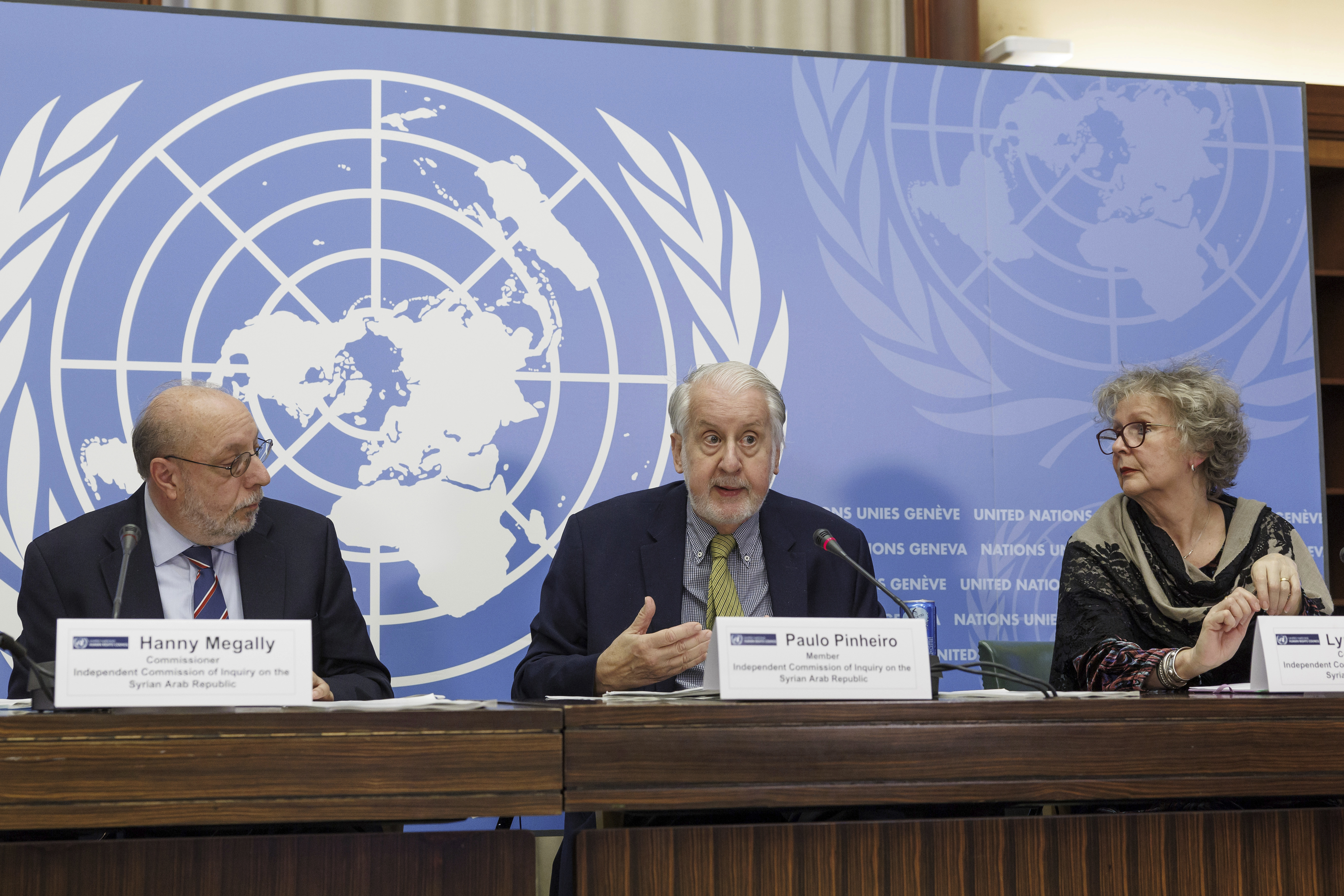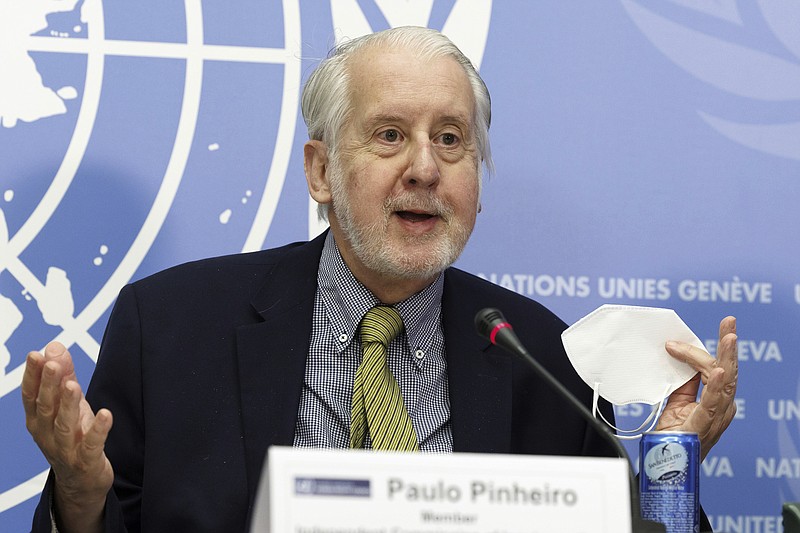GENEVA -- The international community and the Syrian government did not act quickly enough last month to help people in need in the rebel-held northwest after a deadly earthquake hit Turkey and conflict-ravaged Syria, a U.N.-backed commission said Monday.
The Feb. 6 magnitude 7.8 earthquake and strong aftershocks that ravaged southern Turkey and northwestern Syria killed more than 50,000 people, including over 6,000 in Syria.
The Independent International Commission of Inquiry on Syria said there should be an investigation into why it took a week to open border crossings for aid to flow. It added that war-torn Syria "now needs a comprehensive cease-fire that is fully respected" for civilians, including aid workers, to be safe.
The commission also said there have been new attacks in Syria, including a reported Israeli airstrike last week on the international airport of the northern city of Aleppo that put it out of service for three days. The airport has been a main point for aid flowing into Syria, and flights were diverted to two other airports when it was closed.
The commission is made up of outside, independent experts who have been working under a mandate from the U.N.-backed Human Rights Council since nearly the start of the Syrian conflict in 2011.
It took a week for the U.N. and the government of Syria's President Bashar Assad to agree on opening two more border crossings into the rebel-held region bordering Turkey as many people were still under the rubble.
"Since the earthquake, we have seen many acts to help victims by the Syrians themselves," commission member Paulo Pinheiro said during a news conference in Geneva. He added that "we also witnessed a complete failure by the government and the international community, including the United Nations, to rapidly direct urgent lifesaving aid for northwest Syria."
"Many days were lost without any aid to survivors of the earthquake," Pinheiro said. "Actors didn't rapidly direct urgent lifesaving aid to northwest Syria, which became the epicenter of neglect."
A week after the earthquake, the U.N. announced that Syrian President Bashir Assad agreed to open for three months two new crossing points from Turkey to the country's rebel-held northwest to deliver desperately needed aid and equipment to help earthquake victims. Before that, the U.N. had only been allowed to deliver aid to the northwest Idlib area through a single crossing at Bab Al-Hawa, at Syrian ally Russia's insistence.
"They failed to deliver international emergency support, including rescue teams and equipment, in the vital first week after the earthquake," Pinheiro said.
Commissioner Hanny Megally said "it's a shame that all the actors really involved have not been helping in this area and it is difficult of course without proper investigation to say who's most responsible."
U.N. spokesperson Stephane Dujarric said the U.N. legal position is that it works under the mandate of the U.N. Security Council, which at the time of the quake only mandated aid deliveries to Syria's northwest through the Bab Al-Hawa crossing.
The commission called on nations who have nationals held in the camps of al-Hol and Roj in northeast Syria to speed up the repatriation process. It said conditions are deteriorating at the camps that are housing some 56,000 mostly women and children linked to the Islamic State group.
"The suffering inflicted on them may amount to the war crime of committing outrages on personal dignity. We call again for repatriations to speed up," the commission's report said.
Information for this article was contributed by Edith M. Lederer of The Associated Press.
 Brazilian Paulo Pinheiro, centre, Chairperson of the Commission of Inquiry on Syria, sitting between commission members Hanny Megally of Egypt, left, and Lynn Welchman of Britian, right, talks to the media during a press conference before presenting the last report by the commission on the human rights situation in Syria at the 52nd session of the Human Rights Council, at the European headquarters of the United Nations in Geneva, Switzerland, Monday, March 13, 2023. (Salvatore Di Nolfi/Keystone via AP)
Brazilian Paulo Pinheiro, centre, Chairperson of the Commission of Inquiry on Syria, sitting between commission members Hanny Megally of Egypt, left, and Lynn Welchman of Britian, right, talks to the media during a press conference before presenting the last report by the commission on the human rights situation in Syria at the 52nd session of the Human Rights Council, at the European headquarters of the United Nations in Geneva, Switzerland, Monday, March 13, 2023. (Salvatore Di Nolfi/Keystone via AP)